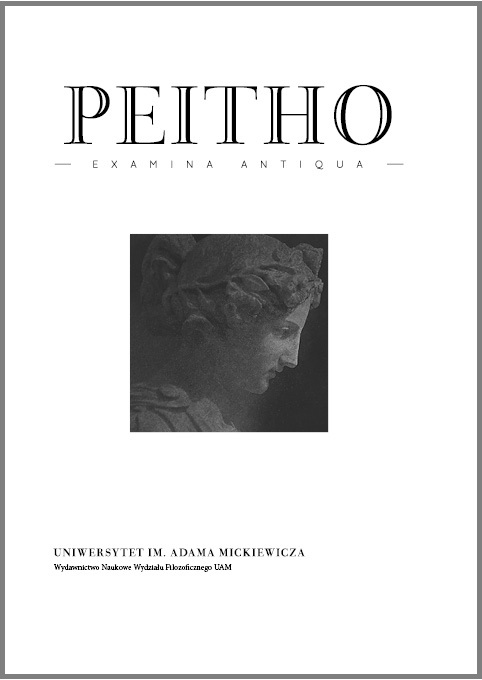Unwritten Doctrine of Pythagoras in Hermias of Alexandria
Unwritten Doctrine of Pythagoras in Hermias of Alexandria
Author(s): ROGÉRIO G. DE CAMPOSSubject(s): Metaphysics
Published by: Uniwersytet Adama Mickiewicza
Keywords: Hermias; unwritten philosophy; written philosophy; Pythagoreanism; Neoplatonism;
Summary/Abstract: In Hermias’ commentary on Phaedrus (In Platonis Phaedrum Scholia), it is possible to identify several direct references to the philosophers and pre-Socratic doctrines, including Pythagoras. We point out to three references to Pythagoras in Hermias: (1) Pythagoras is characterized as an unwritten philosopher, (2) there is a special connection with the divinities and Muses, and (3) there is a special connection with the Phaedrus dialogue, revealed by the affinity between Pythagoras and Socrates. We show how the explicit references to Pythagoras in Hermias constitute a certain method of interpreting Platonism: as a philosophy manifested in writing, but which, at the same time, values the unwritten tradition, represented especially by Pythagoras and Socrates. We also demonstrate how the references translated and examined here reveal the image of this Neoplatonic Pythagoras of Hermias, an image which is not necessarily in tune with the oldest doxography, and which permits the reevaluation of Plato’s position as a philosopher who sought to combine unwritten doctrines with his explicit activity as a writer.
Journal: Peitho. Examina Antiqua
- Issue Year: 13/2022
- Issue No: 1
- Page Range: 185-198
- Page Count: 14
- Language: English

